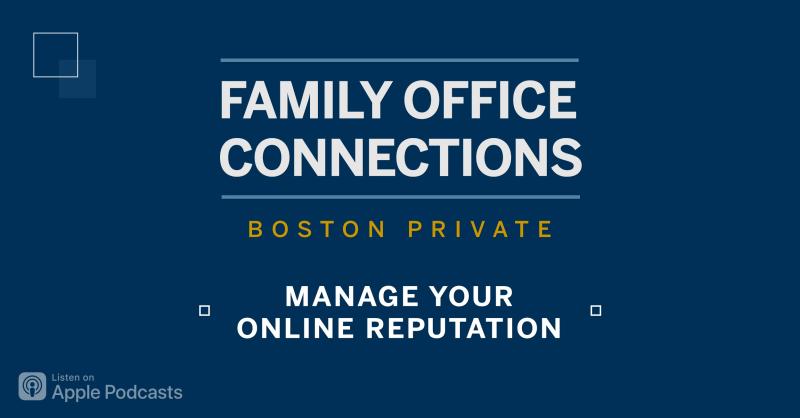
 Dentons, the world’s largest law firm, recently appointed Edward V. Marshall as global head of its Family Office and High Net Worth (HNW) group.
Dentons, the world’s largest law firm, recently appointed Edward V. Marshall as global head of its Family Office and High Net Worth (HNW) group.
As a reputation management firm with deep experience serving high net worth individuals and families—as well as the law, security and risk firms that serve them—this caught our eye. Edward Marshall has long been on the cutting edge of HNW service, with experience at Credit Suisse, Citi and Boston Private, where his family office podcast was a must-hear for HNWIs and those that serve them. He has since launched a new podcast to cater to this space called Family Office Intel.
He is also a core member and senior advisor to the UHNW Institute, a think tank organized to support family offices and ultra high net worth individuals by promoting best practices, professional development and positive change in the wealth management industry and family wealth field.
We checked in with Edward to catch up on the state of HNW risk and opportunities.
What is your role at Dentons?
My role is to build a comprehensive resource to HNW families and family offices. Individuals tend to seek out legal advice at inflection points in their life—either when contemplating a major endeavor or under concerns about a potential negative outcome. The first call most make in these situations is to their lawyers. At Dentons, we have more than 20,000 employees around the world. In this group, we have more than 200 lawyers and professionals on six continents advocating for the interests of family offices and HNW individuals.
The legal function in a family office or family business is often a challenging element to running an effective operation. They often have insufficient legal resources to meet their needs, and most single-family offices do not have in-house legal staff. Quite often, professionals in a single-family office wear multiple hats. You can many times see non-legal professionals being tasked with the responsibility to handle legal issues as they arise. Even if a family office is large enough to have an in-house GC, that internal team still needs a good resource for specialized advice.
You see a lot of activity in the HNW area. What are your conclusions about the state of wealth now?
Wealth is often a catalyst for productive efforts but many times it can be a destructive force in a family. Recognizing the nature of wealth is critical to these families and the ecosystem of advisors they work with. Families are not set in stone and it is important to understand and be prepared for both expected and unplanned changes that are, or could be, on the horizon. Family office executives often operate with resource constraints and juggle multiple responsibilities. Moreover, principals create family offices to serve many motivations, but a key one is convenience. This tug of war between efficient operations and effective risk and threat management is consistent problem for family offices. The good news is that these risk issues are common to many families and can be predicted, and therefore families can and should plan around them.
Your popular podcast is called “Family Office Intel.” You also publish white papers.
Yes—we discuss developments currently shaping the industry and actionable ideas for advisors, executives and families. We share unique knowledge, from insiders, for the modern family office.
I think the HNW industry lacks good sets of data that principals and executives can use to make effective decisions. Hiding behind the notion that “if you’ve seen one family office, you’ve seen one family office” doesn’t help the individuals responsible for running a family office. There are best practices and there are ways to produce actionable data based on sound analysis and research methods. Here is a report on risk and threat management that aims to just do that: http://www.dentons.com/SurveyingTheRisk
Executives and principals want credible, insightful information that they can trust and that is relevant to their decision-making and opportunities. My goal is to provide it.
Our white paper “Using the ‘Anna Karenina principle’ to better understand and operate family offices” is another example of our goal to provide structure and rigor to analysis of the family office sector. In this report, we explore how to potentially define the term “family office,” while proposing a nomenclature and common characteristics of the most typical family office models. We hope this article provides a framework to support the study, development and testing of real-world best practices for family offices.
*
Prior to joining Dentons, Edward helped build and grow the family office practices at Boston Private, Citi Private Bank and Credit Suisse. He began his career in the public sector working for the federal government in the United States and abroad. He is a Board Member for Americas Warrior Partnership, a non-profit focused on ending veteran suicide. Edward earned his MBA from NYU Stern School of Business and has a BS in human biology from Michigan State University.
This is part of our continuing series of interviews with experts whose work relates to reputation management.



